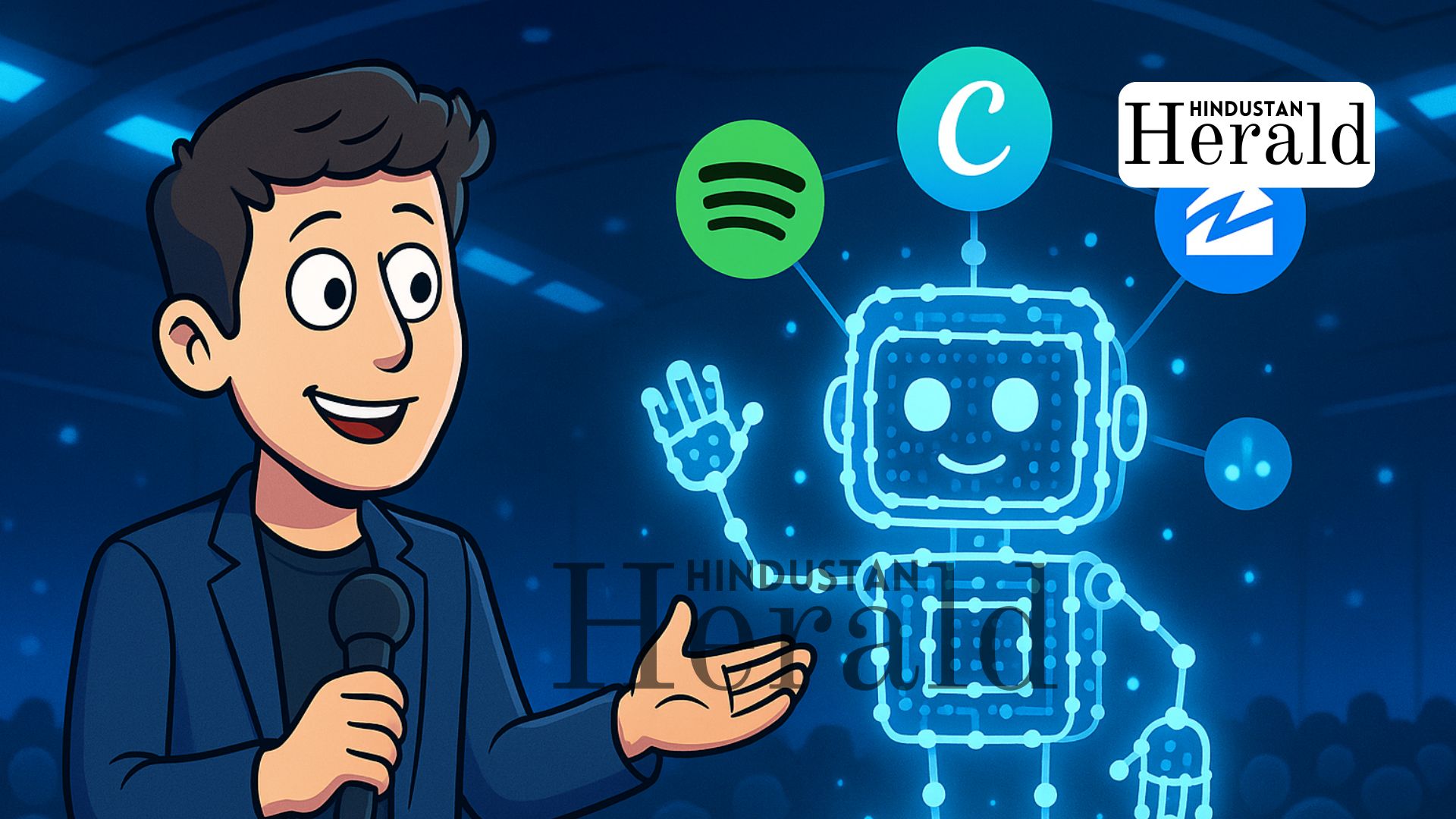New Delhi, October 7: At OpenAI’s DevDay 2025 in San Francisco, the company made one thing clear ChatGPT is no longer just a chatbot. It’s becoming a complete platform for work. The star of the event was AgentKit, a new toolset that helps developers and companies build powerful AI agents that can plan, act, and complete real-world tasks.
A key part of AgentKit is the Agent Builder, a visual workspace that lets anyone design how an AI agent thinks and moves. Imagine connecting boxes on a screen, each box is a step, a decision, or a task. You can now build an agent the same way you’d sketch a workflow on paper.
Reuters described OpenAI’s focus as a “huge enterprise push.” That’s accurate. The company wants ChatGPT to sit at the center of office life, automating reports, handling emails, booking meetings,and even pulling data from tools like Spotify, Zillow, and Canva.
OpenAI’s New Toolkit
As reported by The Economic Times, AgentKit brings together three major features:
- Agent Builder – a drag-and-drop interface for creating AI workflows.
- ChatKit – tools for embedding chat interfaces into websites and apps.
- Evals for Agents – analytics that show exactly how an agent makes decisions.
OpenAI also upgraded Codex, its code-writing model. It now runs on the GPT-5 family and can explain how and why it writes code, a big step for transparency. Developers can track the time and logic behind every result, making it easier to trust AI-driven coding.
The company also introduced ChatGPT Apps, which let users run popular platforms directly inside ChatGPT. For example, you can create a Spotify playlist, browse homes on Zillow, or edit a design in Canva without leaving the chat window. Axios reported that these apps rely on an open standard called the Model Context Protocol, which connects ChatGPT to other services smoothly and securely.
A Shift Toward Business Users
While the tools are flashy, the bigger story is OpenAI’s shift to the enterprise market. According to Reuters, the company has formed new partnerships with major brands and is positioning ChatGPT as a “work assistant” for large organizations.
Business Insider revealed that OpenAI even built internal tools to prove its own products work: a sales assistant called GTM, a support chatbot, and OpenHouse, an HR agent. They’re not for sale yet, but they show how deeply AI can be woven into day-to-day operations.
For companies, the appeal is clear. These new tools make AI agents traceable and explainable. Managers can see what an agent did, when it did it, and why, solving one of the biggest trust issues in automation.
What Users Will Notice
For regular users, the change will show up as smarter, more capable conversations inside ChatGPT. As explained by The Times of India, the new ChatGPT Agent can complete complex tasks like planning an event, creating a report, or building a presentation, all while explaining its process.
Initially, this upgrade will reach Pro, Team, and Enterprise customers. Later, it will roll out more widely. The goal is simple: make ChatGPT useful without making it complicated.
Developers Get a Boost
For developers, AgentKit lowers the barrier to entry. You don’t need deep AI knowledge to build something valuable. Using Agent Builder, teams can now create custom agents for customer support, HR, or marketing in hours instead of weeks.
But there’s another side to this. As WIRED pointed out, OpenAI now controls the main interface where these apps live, the ChatGPT window. Developers want clarity on how they’ll make money. The company has promised a revenue-sharing plan, but details haven’t been released yet.
Still, the technical progress is impressive. With Codex, developers can now chain multiple tools together, monitor every action, and debug in real time. As The Economic Times noted, Codex’s flexibility makes it ideal for enterprise-scale projects.
Competition Is Heating Up
The timing is strategic. OpenAI is racing to define what the next generation of software looks like before Google, Anthropic, or Meta takes the lead. Instead of switching between apps, OpenAI wants users to stay in ChatGPT, one chat window that talks to everything else.
That vision comes with risks. If OpenAI’s platform becomes too dominant, developers could lose freedom, and users could face lock-in. Reuters reported that partners like Spotify and Zillow have already demanded strict limits on data sharing to protect user privacy. OpenAI says user data won’t be used for training without consent, but it will need to prove that in practice.
India’s Role In This Shift
For India, this launch could open major opportunities. The country’s IT services firms and SaaS startups can now build custom AI agents using AgentKit and sell them worldwide. From automating bank compliance to running school admissions, the possibilities are vast.
There’s also a growing market for ChatGPT-native app services that exist entirely inside the chat window. Indian companies in travel, education, and healthcare could use this to reach global customers directly.
However, compliance remains a concern. India’s Digital Personal Data Protection Act requires strict control over how user data moves and is stored. Features like trace grading and admin dashboards will be essential for Indian companies adopting these tools.
What Comes Next
The next few months will decide whether OpenAI can make ChatGPT a true platform, not just a smart assistant. The company must show two things:
- Developers can earn real money building for ChatGPT.
- Enterprises can deploy these agents safely and see measurable results.
If both happen, this launch could reshape how businesses use software. The chat window, once just a place for conversation, could become the main way people interact with technology.
For India’s tech community, it’s an open door. The world is moving from app-building to agent-building, and OpenAI just handed developers the blueprint.
Stay ahead with Hindustan Herald — bringing you trusted news, sharp analysis, and stories that matter across Politics, Business, Technology, Sports, Entertainment, Lifestyle, and more.
Connect with us on Facebook, Instagram, X (Twitter), LinkedIn, YouTube, and join our Telegram community @hindustanherald for real-time updates.
Tech writer passionate about AI, startups, and the digital economy, blending industry insights with storytelling.






